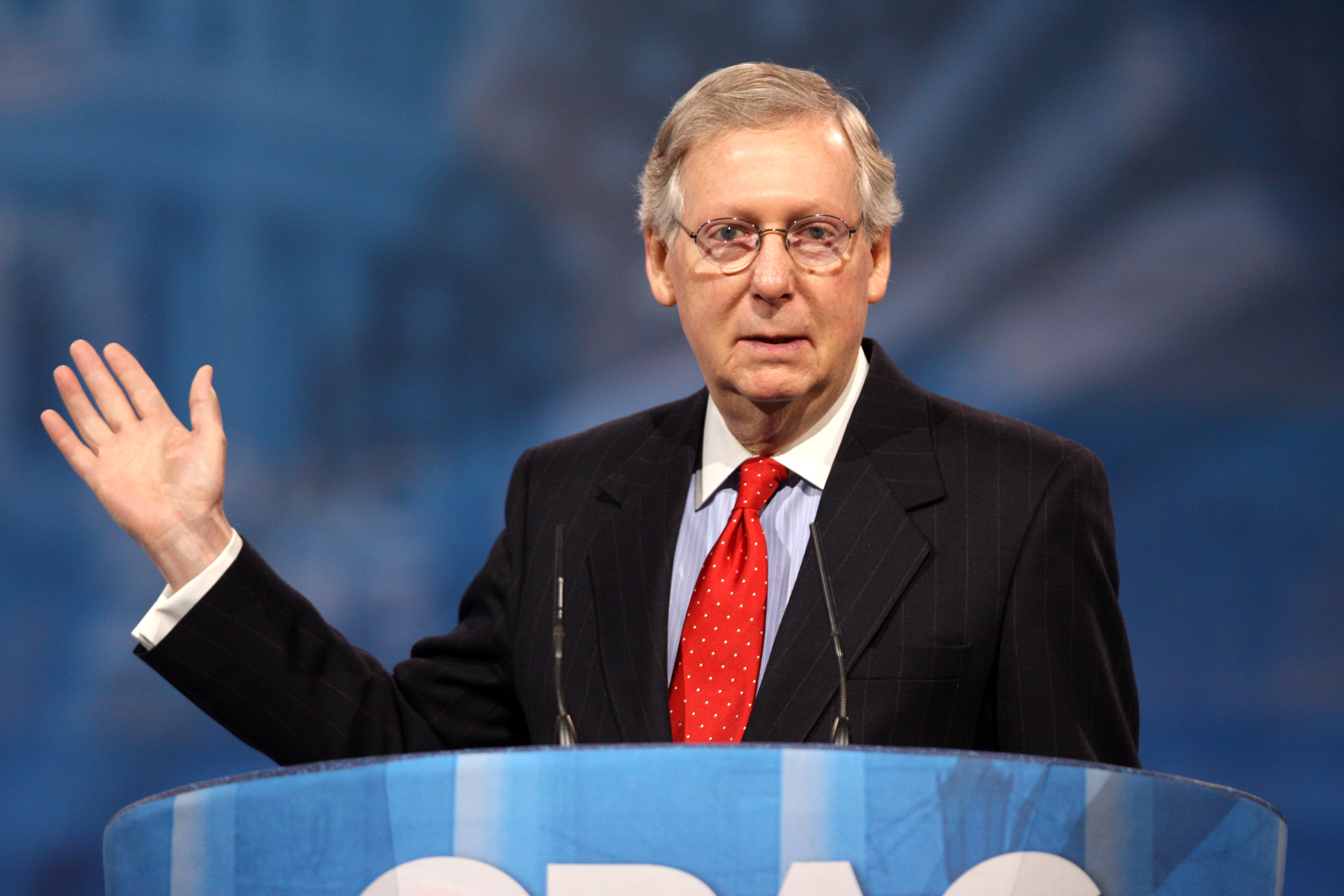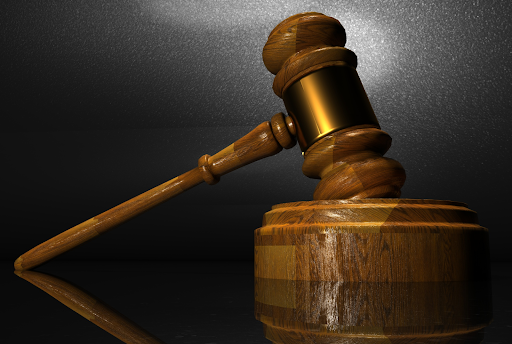February 13, 2016: Antonin Scalia is dead.
The brilliant conservative jurist, beloved on the right and often demonized on the left, had for decades stood as a conservative titan and stalwart on the Supreme Court.
Scalia, 79, was discovered dead in his room at a luxury resort, where he had been visiting for the weekend, with plans to return to Washington.
News of Justice Antonin Scalia’s death sent shockwaves through Washington and the nation. An already contentious and extremely unpredictable presidential race was turned on its head. At a CBS Republican debate that night, right off the bat, the topic of who would replace Justice Scalia was front and center. All the candidates were in agreement, arguing that in the midst of a presidential election year, President Obama should not nominate someone to replace Scalia.[1]
Candidates for the presidency, both Democratic and Republican, have been talking about and campaigning on the likely prospect of the next president having the opportunity to appoint a number of new Supreme Court justices.
Ironically, a little over a month prior to Justice Scalia’s unexpected death, former President Bill Clinton, at a campaign rally for his wife, spoke about the importance of the fact that the next president may have that opportunity. It was an issue people weren’t really talking about:
“We need to recognize something that has received almost no attention in this election, which is that the next president of the United States will make between one and three appointments to the United States Supreme Court.”[2]
Oh Bill, how times have changed.
Scalia’s death suddenly transformed that hypothetical into a stark reality. Republican presidential hopefuls pounced, declaring that the next president, not our current president, should nominate the next Supreme Court justice.
Twenty-eight minutes after I first saw a report of Scalia’s death, Texas Republican Senator and 2016 presidential candidate Ted Cruz tweeted:
“Justice Scalia was an American hero. We owe it to him, & the Nation, for the Senate to ensure that the next President names his replacement.”[3]
For a Harvard Law alum, former Supreme Court clerk, Texas solicitor general, and man who describes himself as having “spent a lifetime fighting to defend the Constitution” and argues that “we need to restore the Constitution as our standard,” he sure has an interesting way of looking at the Constitution.[4]
On the evening of Scalia’s death, President Obama mourned the passing of the Justice, and delivered a speech in which he stated firmly that he would fulfill his constitutional duty to nominate a replacement for Scalia’s seat on the Supreme Court, irrespective of the fact 2016 is an election year. The President cited his duty, enshrined in the Constitution, to nominate a replacement, and reminded the American people of the Senate’s constitutional duty to “give that person a fair hearing and a timely vote.”[5]
However, the Republican Senate leadership, and most of the Senate Republican Caucus, have no intention of doing that. Even prior to the president naming a nominee to replace Scalia, Senate Majority Leader Mitch McConnell said that he would not allow nomination hearings, citing the fact that it is a presidential election year. Furthermore, McConnell has argued, then and now, that “the American people should have a voice in the selection of their next Supreme Court Justice.” And the majority of his caucus, excluding vulnerable incumbents facing tough reelections and some moderates, agree with him.[6]
McConnell’s argument that the American people should have a voice, through the presidential election, in choosing the next justice on the Supreme Court is absurd. First of all, the president nominates a Supreme Court justice, and the Senate then determines whether or not that nominee will sit on the nation’s highest court. The American people do not have a direct say in this matter. However (and it is a big “however”), even if we were to agree that the American people should have a say in who the next justice will be, the fact is that they already did! The American people chose Barack Obama to lead the nation, not once but twice, in 2008 and again in 2012. Obama ran for a position, which, in the job description (see Constitution) stipulates that if there is a vacancy on the Court, the bearer of the office of the president will nominate a new justice, and the Senate shall advise and consent.
The fact is, no matter how the Republicans slice it, they are being derelict in their duties as United States Senators. Though they may not be breaking the law by refusing to hold nomination hearings, they are definitely not acting in the spirit of the Constitution.
President Obama’s nominee, Chief Judge Merrick Garland of the D.C. Circuit Court, is an extremely well-qualified, moderate, centrist jurist. He has been praised in the past by Senators on both sides of the aisle, some of whom are still in the Senate today. Some pundits have posited that, with a Democrat in the White House, Congressional Republicans could not hope for much better than moderate Merrick Garland.[7]
Yet, as previously mentioned, Republicans have been the party of “no” on this since Scalia was reported dead. They said “no” to confirmation hearings, regardless of whom the nominee was. And now, even after President Obama nominated someone who has more experience as a federal judge than any Supreme Court nominee in history, the Republican Senate leadership and a majority of the Senate Republican Caucus are still refusing to even meet with Judge Garland, let alone hold hearings to determine whether or not he is qualified to be the next Associate Justice of the Supreme Court of the United States.[8]
Additionally, though McConnell and the remaining Republican presidential candidates claim that they want to let the American people have a voice in who the next Supreme Court Justice is, the fact of the matter is that a majority of the American people, 64%, believe hearings should be held to determine his eligibility to sit on the bench. Furthermore, a majority of the American people, 52%, believe that Judge Garland ought to be confirmed by the Senate for his Supreme Court appointment.[9]
More important than the aforementioned reasons why Republicans should hold hearings, having a vacancy on the Supreme Court for an extended period of time could have potentially disastrous consequences. Prior to Scalia’s death, a large number of Supreme Court cases were decided by 5 – 4 decisions. In late March, once the Supreme Court reconvened, we saw the first 4 – 4 tie in a case regarding unions and collective bargaining. If the vacancy on the Court remains for an extended period of time, it is not unlikely that ties like this will become common, and important cases will not be resolved, leaving lower courts’ decisions in place. With major and controversial cases regarding issues such as abortion, affirmative action, religious freedom, and immigration (to name a few) on the docket for this term, the country cannot afford to have a deadlocked court.[10]
Not only are the actions of Leader McConnell and the majority of his Republican Caucus absurd, but they are also irresponsible and dangerous. The work of the Supreme Court cannot be allowed to be impeded by partisan politics.
Leader McConnell, Chairman Grassley, and the majority of the Senate Republican Caucus are being derelict in their duty as United States Senators. Though it might not be required, in the spirit of the Constitution, they should hold hearings to determine Judge Garland’s eligibility, and have an up-or-down vote on his nomination. This is fair, and, frankly, this is their obligation.
Senate Republicans: do your job.
[1] Jonathan Martin, “Republican Candidates Unite Against Obama on Replacing Scalia,” The New York Times, February 13, 2016, http://www.nytimes.com/2016/02/14/us/politics/republicans-unite-against-president-obama.html.
[2] Ben Kamisar, “Bill Clinton: Next President Could Reshape Supreme Court,” TheHill, January 4, 2016, http://thehill.com/blogs/ballot-box/presidential-races/264655-bill-clinton-next-president-could-reshape-supreme-court.
[3] Liam Stack, “Ted Cruz Says President Obama Should Not Name Scalia’s Successor,” February 13, 2016, http://www.nytimes.com/live/supreme-court-justice-antonin-scalia-dies-at-79/ted-cruz-president-obama-should-not-name-scalias-successor/.
[4] “Restore the Constitution | Cruz for President,” Cruz for President, https://www.tedcruz.org/issues/restore-the-constitution/.
[5] “Remarks by the President on the Passing of the U.S. Supreme Court Justice Antonin Scalia,” The White House, February 13, 2016, https://www.whitehouse.gov/the-press-office/2016/02/13/remarks-president-passing-us-supreme-court-justice-antonin-scalia.
[6] Burgess Everett, Glenn Thrush, “McConnell Throws down the Gauntlet: No Scalia Replacement under Obama,” POLITICO, February 13, 2016, http://www.politico.com/story/2016/02/mitch-mcconnell-antonin-scalia-supreme-court-nomination-219248.
[7] Trevor Burrus, “Merrick Garland Is the Best Conservatives Could Hope For,” Time, March 03, 2016, http://time.com/4261489/merrick-garland-supreme-court-nominee/.
[8] Ariane De Vogue, Tami Luhby, “Who Is Merrick Garland?,” CNN, March, 17, 2016, http://www.cnn.com/2016/03/16/politics/who-is-merrick-garland/.
[9] “CNN – ORC International Poll,” March 25, 2016, http://i2.cdn.turner.com/cnn/2016/images/03/24/rel5c.-.obama,.scotus.pdf.
[10] Adam Liptak, Larry Buchanan, Alicia Parlapiano, “How a Vacancy on the Supreme Court Affects Cases in the 2015-16 Term,” The New York Times, March 29, 2016, http://www.nytimes.com/interactive/2016/02/14/us/politics/how-scalias-death-could-affect-major-supreme-court-cases-in-the-2016-term.html?_r=0.



